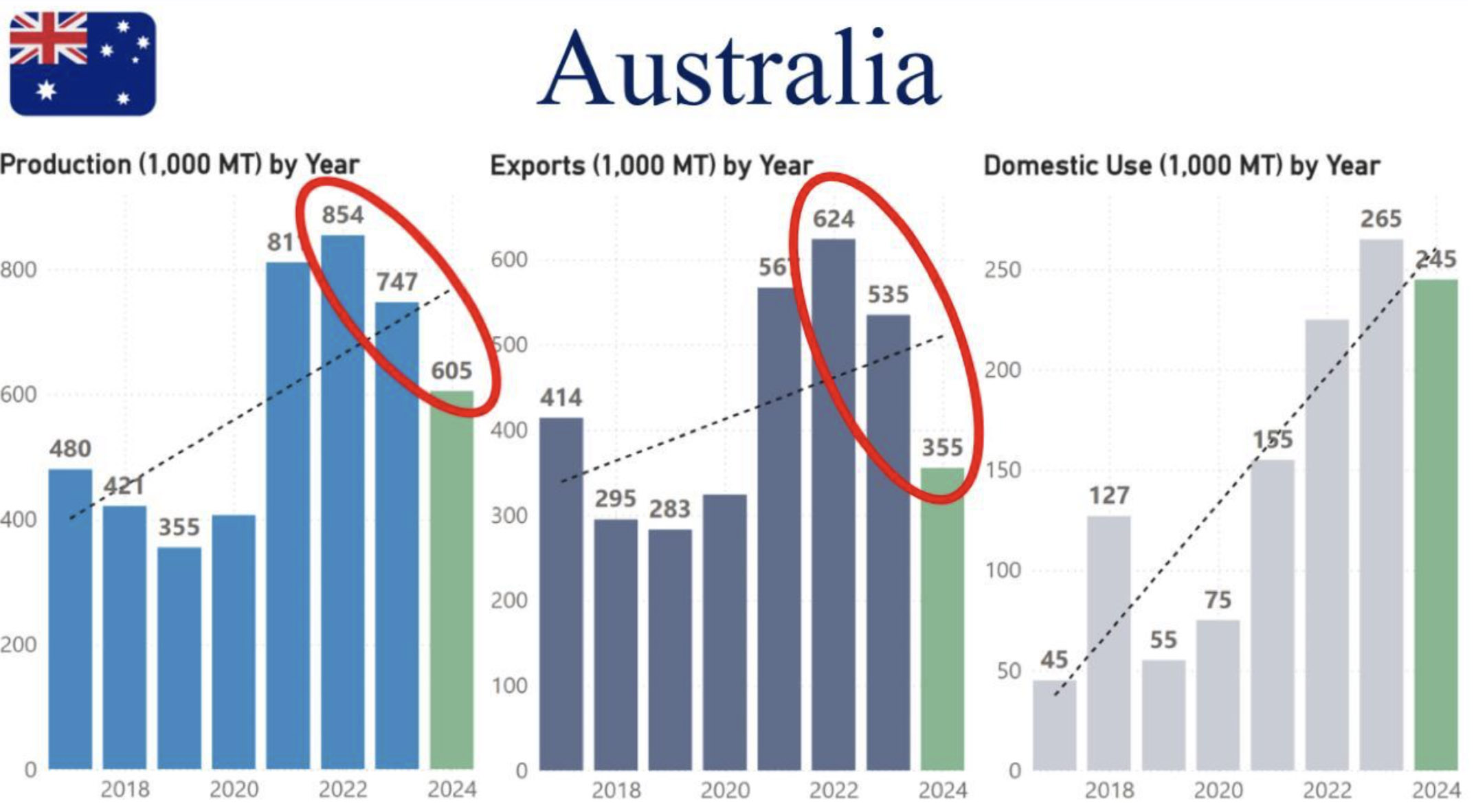March 5, 2024
In 2024, Australia is projected to generate an estimated 605,000 metric tons (MT) of faba beans, marking a notable decline from the preceding two years, as reported by exclusive Pulse Atlas Data.


Exclusive Pulse Atlas data forecasts a 19% reduction in Australian faba production compared to 2023 and a 29% decrease from the volumes observed in 2022. The decline can be ascribed to various weather-related challenges and a reduction in the planted area. The Bureau of Meteorology in Australia declared the presence of El Niño for the 2023/2024 period, resulting in warmer and drier conditions with minimal rainfall.
Despite a slight 7% drop from the previous year, domestic consumption of faba beans continues to ascend, with an anticipated 245,000 MT for 2024. This upward trend is partially attributable to the growing utilization of faba beans as a valuable feed source, owing to their comparatively stable prices in contrast to canola and soybeans.
Exports, on the other hand, witnessed a substantial decline, plummeting to 355,000 MT in 2024 from 535,000 MT in 2023 and 624,000 MT in 2022. The scarcity of hard currency in Egypt, Australia's biggest buyer of faba beans, and the sharp depreciation of the Egyptian pound against the Australian dollar are key factors contributing to this decrease.
Francois Darcas, Deputy Chairman of Pulse Australia.

Pulse atlas data in focus: unpacking australia's faba forecast for 2024 / Pulse Atlas / faba beans / australian faba / Francois Darcas / Pulse Australia / Agri-Oz
Disclaimer: The opinions or views expressed in this publication are those of the authors or quoted persons. They do not purport to reflect the opinions or views of the Global Pulse Confederation or its members.